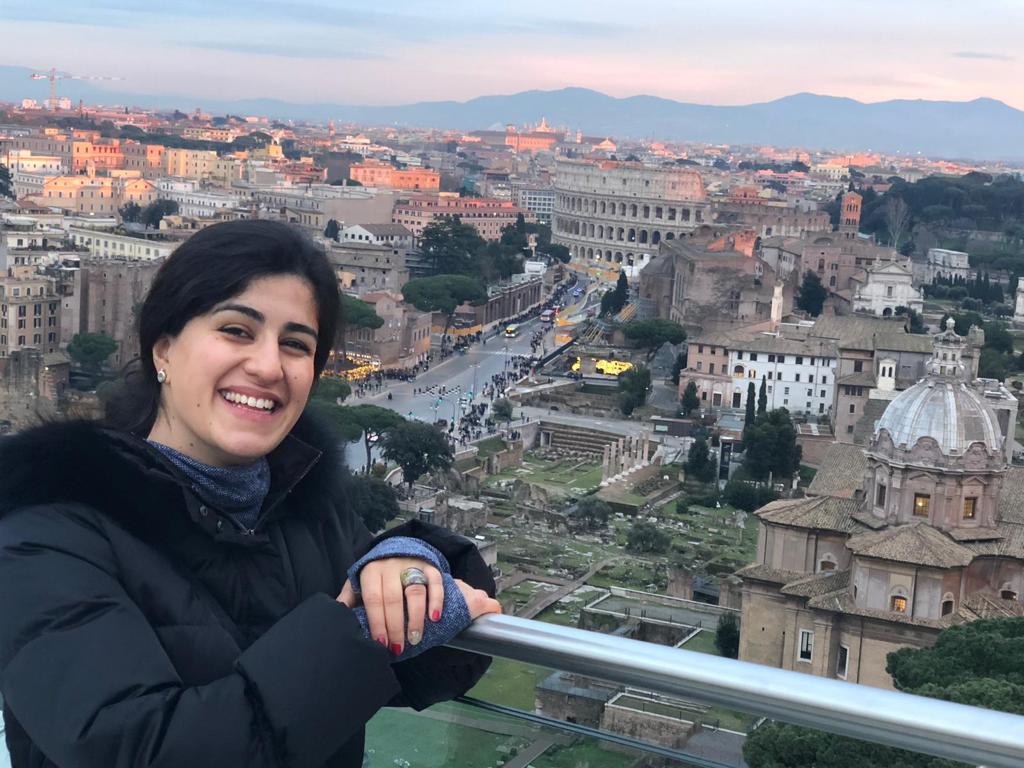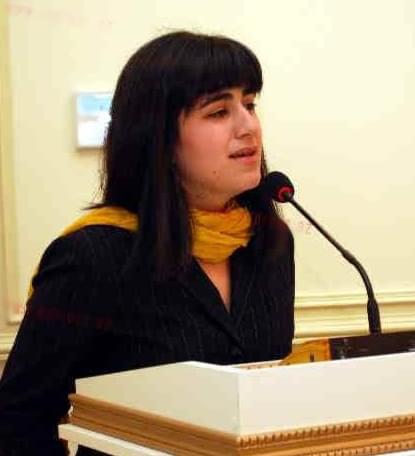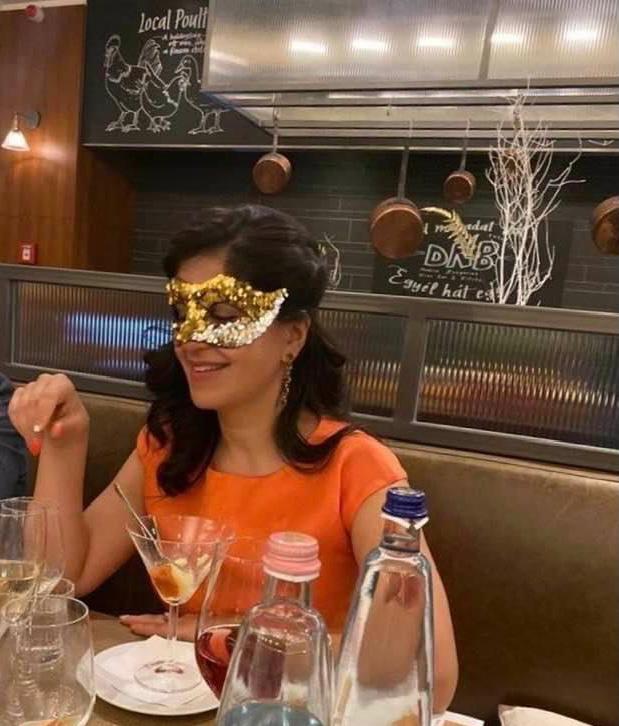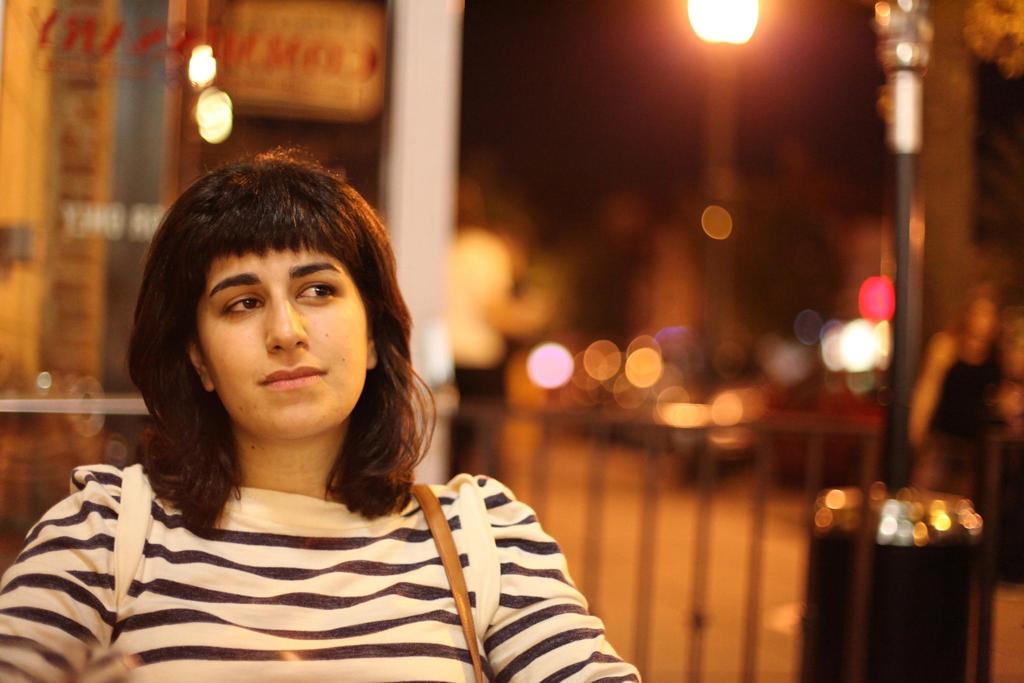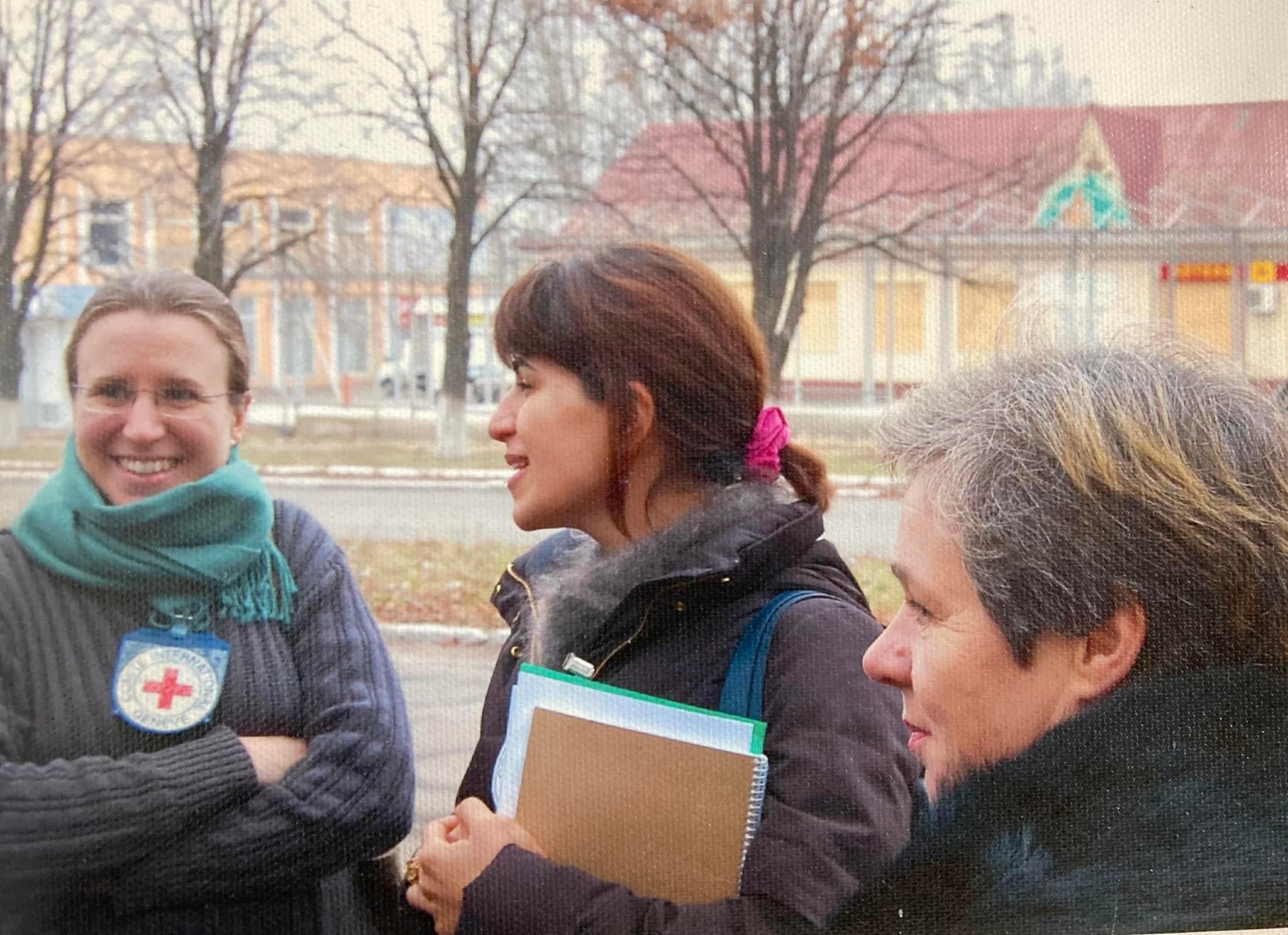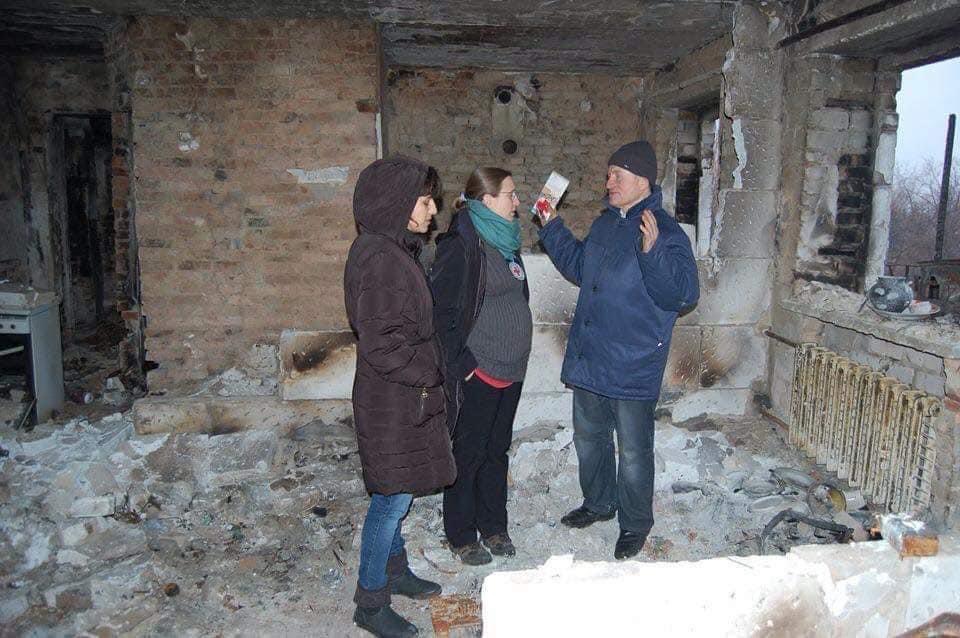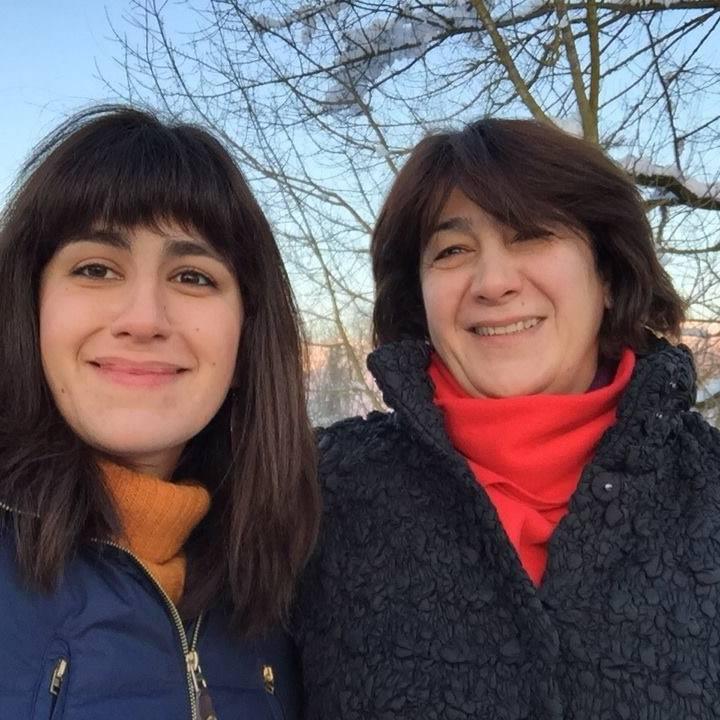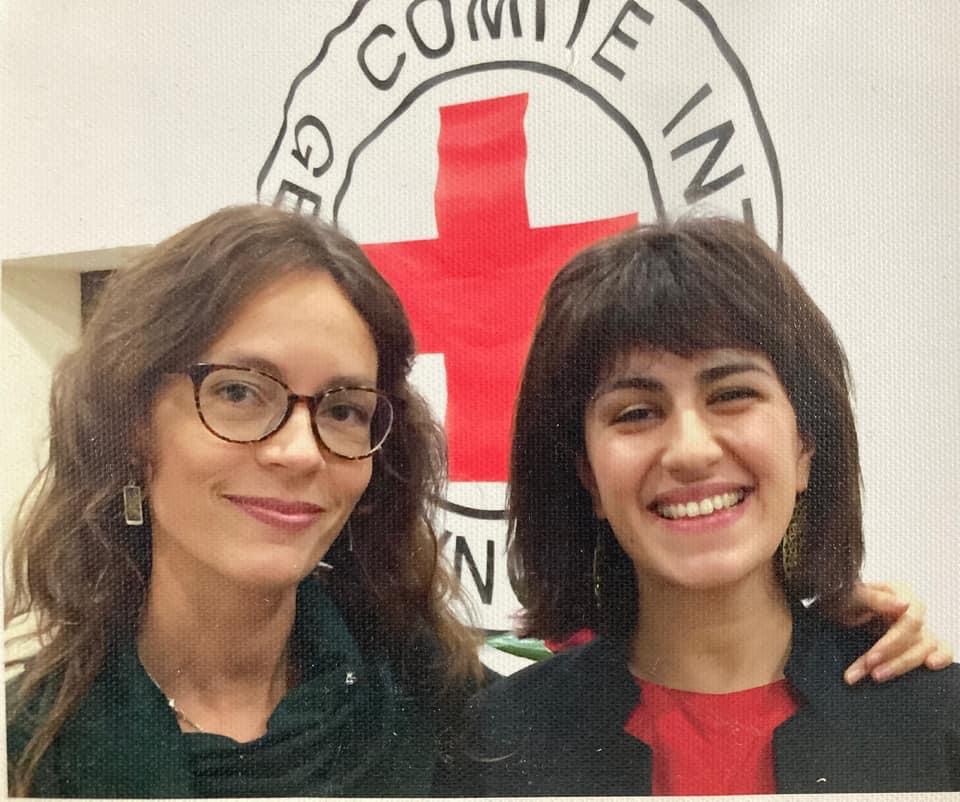My mother in four movements
Summer
My mother never said that I am beautiful, but once.
Before and after she used infinite times “charming,” “sweet,” “pretty,” "nice," and even “you have a devil’s hair on your face,” which in Azeri means that everyone is drawn to me. But never "beautiful."
I dived out of the sea after a long swim underneath, in front of her. The weather was perfect, the sky immense and the Caspian clear. I sucked in the air hungrily and laughed breathlessly and mom said: “Humay, you have a very brave beauty, you know.”
I dived back in with my eyes wide open. The waters of the Caspian are not salty. They shouldn’t be, as it is the largest lake in the world. Yet, it defies the definition over and over again - crashing waves with stubborn violence against the rocks, polishing them fiercely, drowning every summer the grim number of unfortunate swimmers and inspiring the poets. Caspian is the ultimate sea, with no access to the ocean and despite all the geographers might say.
Underwater, the sea embraced me with light blue cut across by rays of sun. I swam, full of dizzying, defying confidence. The imperceptible change of light winked from the seabed. I emerged from underwater. Transformed. Beautiful.
Autumn
Early autumn is a special splendor in villages around Baku. The air is clearer, the stars are brighter and higher, the nights cooler, the dog barks louder, and so is the Caspian; come to think of it, Caspian is extremely loud, whipped mercilessly by khazri, the northern wind and nothing can match the taste of lamb kabab eaten at mangal. The summer is gone. Yet at seven in the morning, the ripe figs burst with a sinful juice as a carnival in a sleepy cave of your mouth. The truth is you shouldn’t be here - summer houses are for summers only. Still, every year, we managed to steal a few September days and add them to summer’s count.
On one of these days the kitten came. Nobody knew where it came from. As the majority of life’s facts (read: love), it appeared out of the blue one morning and stayed.
My mom never liked the animals. This kitten was an exception though. She made a toy for it herself, a roll of thin paper on a long string. She laughed, when the kitten jumped high up to grab the roll. Her mischief was a pure delight, her bliss contagious.
She made a habit of sleeping on a doormat. The door was heavy metal. We opened it in the mornings and locked at nights. During the day we put a chair in front of it, so it wouldn’t slam shut with bouts of wind. There was another, lighter door with a wooden frame and a net to keep mosquitoes away.
Once, having tea at the balcony, we heard a shriek. My aunt leaped and ran. Someone must have forgotten to put the chair in front of the door. It slammed shut and squeezed the kitten in lethal embrace. The animal trembled. Something yellow and disgusting poured out of its ear. My aunt put it on lawn. It lied there, breathing heavily and shit itself. “This is not good,” she said. “Cats are very clean animals.”
I brought milk. Water. Meat. No reaction. My aunt snapped fingers in front of kitten’s face. Blank. “Maybe she got blind,” she said. The tiny animal shrank into a helpless lump.
I hovered around for half a day. My mother finally told us to put the animal at the far end of the yard. “Let’s wait and see what happens.”
I kept on checking on the kitten. Every time I expected it to be dead, life extinguished out of its small body. Yet there it was on the ground, unmistakably alive. At the end of two days, my mother suggested to put it to sleep. “It is only for the better. Poor thing is in agony.” There was a man, a jack of all trades who worked in our summer house. We asked him if he knew a vet in the village. He asked why. “It’s a sin,” he said. “The Prophet would walk without his cloak rather than disturb his cat’s sleep. Don’t do it.” We didn’t. We waited.
We waited as one waits for a miracle and it happened on the day my dad came. He came early morning with Istanbul flight, a bit tired, but good-looking and kind as usual, his solid confidence in life and its possibilities visible on his face. We got distracted. I put tea. And then, there was the kitten. After three days of darkness on the edge, it emerged into life. I would want to say that it leaped into life, but it was still slow to leap. It looked famished but clean, with eyes no longer clouded, walk perfectly elegant, gently tentative. It was the first time my dad saw the kitten.
We interrupted each other telling the story, drinking tea, clicking our tongues, rolling our eyes, overwhelmed in the perfect storm. My dad loved the kitten. It would walk him to the bathroom outside the house, sit and wait patiently, and walk back with him. “It’s true that cat has nine lives,” my mom said. I thought of Thomasina, a cat from a children’s book, her deaths and comebacks, transformations and reincarnations.
That summer was bittersweet. My grandma had died in April. She was a beautiful, intense woman, often too dominant. Now gone forever, her absence loomed present in every one of her chicken, every mulberry from the 100 year old tree. My mother, who was a doctor, was devastated. She had taken her mother through cancer complications alone in a foreign land. I was fresh back from the States, with my master’s degree complete and a desire to go back again. My mother did not want me to, but she did not argue much. She was too tired.
In mid-September, I left. I did not have a job or a place to stay in New York. To save money, I would sleep on my friend’s couch in Harlem. To my mother, this was odd. She was not at peace with my decision. She was a woman of solid certainties, of clear plans, of tangible outcomes. She let me go nonetheless.
The evening before my New York flight, the kitten did not appear. I called and called for it, and thought it asleep. I woke up early in the morning, but the kitten never came. I left to the airport with no peace at heart. “How strange,” I thought. “Where could it be?”
New York was indifferent, noisy and hot. I sat at Columbia campus, no longer part of it, my driving license expired, my student ID, my library card no longer valid. A stranger in the city of strangers.
I called my mom. Almost immediately I asked about the kitten. “It hasn’t come,” she said. “I looked everywhere. I was out the whole morning searching. It hasn’t come.” Sadness had seeped into her voice. She sounded hurt and lonely. I felt empty and dizzy in New York’s heat. Where could the kitten be? It was saved by an almost divine intervention.
My mother kept searching for days. Then, one day, she walked into the garage and almost fainted with the smell. She saw the kitten. It crawled under the water-pump engine and was electrocuted. There are only so many times you can outwit, outrun your destiny.
I have seen my mother walking in the hospital room slowly after a surgery, with a tiny sack of blood protruding from somewhere, crawling behind her. I have imagined her flying from Warsaw to Baku, crying on the plane as her mother’s death, the finality of it, dawned on her. I have seen her fear, when she was misdiagnosed with cancer. Yet, in my heart of hearts, I never worried. I knew that my mother was a strong woman.
But only when I think of her alone in that summer house, in the early hours of morning, searching for a kitten, calling it desperately, does my heart skip a beat. And even two.
Winter
Close to the end, my grandmother didn’t talk much. She would sit in front of Skype camera and tell me, “talk.” “What do you want me to talk about?” I said. “Anything,” she said. “Anything you say is interesting to me.”
So I talked. I talked about my dreams. “It’s a good dream,” she would say invariably to all of them. I talked about gay Jews protesting Ahmadinejad’s speech on campus. (“I am gay and I am a Jew, and I am a grandson of two Holocaust survivors. I guess Mr.Ahmadinejad wouldn’t have liked me.”)I talked about how expensive organic food is in American supermarkets. I invented my heroic cooking acts. I told about my roommates, whose bras and shoes were mixed together on the floor. I talked about boys, or rather one boy – Irakli. He was Georgian and my grandma did not approve at all. She said they were arrogant. She was right.
I don’t remember much of what my grandma had told me. A lot of her stories were not happy ones – chemotherapy, tests, symptoms, doubts, more tests and more chemotherapy. Occasionally, there would be an extremely good looking doctor and my grandma mobilized her charms in a language she did not know a single word of. There was one story though, true and cinematic, as I imagined it. It belonged to French films - Juliette Binoche in my mom’s role sitting at the bedside with her splendid lips and simple stylish black clothes. But it’s a true story, and life often trumps cinema. The spirits of those who were shot in Aurora, Colorado during the premiere of “The Dark Knight Rises” (note the title!) can attest.
My grandmother had a lung cancer and a part of her left lung was cut. Doctors said she needed to do breathing exercises, to breathe deeply (to deep briefly?) to expand her lung’s functionality. Once, they told her to blow three balloons. She blew one. Another. Then she laid back and said that she is tired. My mother said, “come on, mom. It’s the last one.” My grandmother barely raised her head from the pillow. “Mama!” my mother said. “My breath is not enough,” said my grandma. “You can’t just lie there and hope to get better,” my mom said. “You have to be active. Even when it hurts, you have to be active.” My grandma shook her head. That was the end of it. Except that, it was not. My grandma did rise up from her bed and did blow the third balloon shortly after and my mother’s eyes sparkled with joy.
And then, multiple times as my grandmother told me the story, she would always add, “and I knew then that they could give a house or a car or million dollars to Shahla, but none of it would make her as happy as that third balloon did. She kissed me on both cheeks and said, “Mama, that’s it. You will get better.” And then my grandma added: “I am a very happy woman. When I saw your mother’s eyes, I knew that I am a very happy woman.”
My grandmother died shortly after.
Spring
Spring is an unbearable hope, a distant whiff of smoke, a slight change in the morning light, an expectation of beauty, a luminosity. Love.
This particular spring, there are butterflies in my stomach. He is the coolest ever, el flor de mi secreto, the secret wink of a destiny after false starts, almost five years younger, but so very mature. I dream of Ushuaia, its cold lakes and hot coffees. Ushuaia is the end of the world. Beginning of everything.
I tell my mother sitting at our kitchen table. I tell my mother in a tiny coffee bar, just before we cross the Chain Bridge in Budapest. I tell my mother as we sit in Big Ben teahouse, spooning our delicious dessert. I tell my mother as we walk sunny streets.
She looks. She nods. She smiles. She understands.
“He looks like a football star,” she says.
“I dreamed of a big beautiful white car a week ago,” she said.
